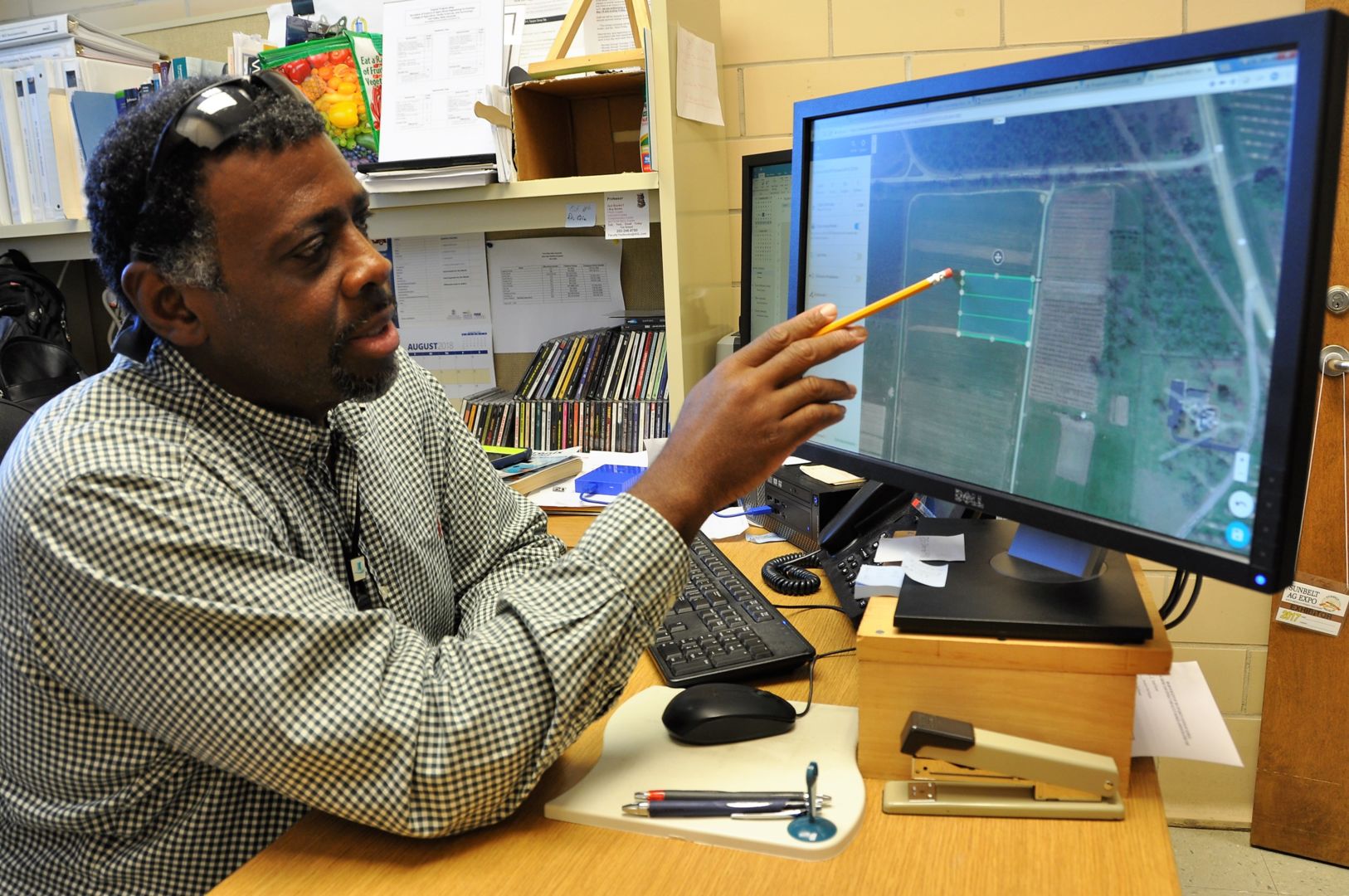A Fort Valley State University professor is using a $200,000 grant to help broaden students’ horizons in agricultural engineering technology and provide cost-saving alternatives for Georgia farmers.
Dr. Archie Williams, head of FVSU’s Department of Engineering Technology, said the Evans-Allen grant (GEOX 6107) will benefit farmers, students and various constituents in learning how they can utilize drones for mapping agricultural crops.
Awarded by the U.S. Department of Agriculture’s (USDA) National Institute of Food and Agriculture (NIFA), Williams aims to expand the range of opportunities for the Department of Engineering Technology. “It gives us a platform to attract more students and enhance our relationship with local farmers,” he said.
Through this grant, Williams plans to develop and refine experimental and data collection procedures for various agricultural unmanned aerial vehicle (UAV) applications directly related to the needs of the university and the College of Agriculture, Family Sciences and Technology.
His research objective is to assess the capabilities of the DJI Phantom 3 Professional UAV. This will include performing a comparative analysis on images produced by various camera lenses and filter configurations.
“We will also evaluate how well the UAV can identify unknown problem areas and employ conventional statistical methods to analyze data capture times and image capture configurations,” Williams explained. “As the research and our experience progress, we will be better able to refine and expand experimental configurations and the statistical methods required for analysis in consultation with both agricultural producers and a statistician.”
Furthermore, Williams is able to introduce farmers to basic hands-on training and obtain information that applies specifically to their crops. He said there is a limited bridge of information between the drone industry and farmers.
“We want to start making some of those connections so that the people who are collecting information from the drones can compare and apply it to the information that the farmers need to make day-to-day decisions,” Williams said. “Eventually, we want to get to the point where we can offer some course training for farmers so they can get their pilot certification and be self-sufficient.”
According to the Federal Aviation Administration, remote drone pilots are required to complete a recurrent training course or pass a recurrent knowledge test every 24 calendar months to continue to exercise the privileges of their remote pilot certificates.
In the first year of the project, Williams anticipates training seven to 12 participants. Each subsequent year, he anticipates increasing the number of trainees by 50 percent annually.

A program that Williams will offer training in is DroneDeploy. This software allows farmers to use a computer and tablet to map out their crops and locate problem areas that may need additional fertilizer or treatment.
“The drone will automatically follow the pattern mapped out and take pictures of the crops,” Williams said. The drone takes a picture every two seconds and will collect approximately 100 pictures.
Williams said he uploads the snapshots from the SD card into DroneDeploy, which processes and stitches them together to make a big map. “The clarity is amazing. You can almost see individual leaves from 200 feet above,” he said.
The engineering professor said drones allow farmers to get a different perspective than they would get from being on the ground. “They can see things that they wouldn’t see normally,” he said.
In addition to clear imagery, Williams said drones can be a low-cost alternative for farmers and can improve efficiency. “You can fly a drone over many acres in 10 or 15 minutes and get the same information that you would get walking or driving around the field for a whole day,” he insisted.
To further help farmers, Williams plans to train students on piloting drones, along with providing them with research and publishing opportunities. He is also seeking involvement from various constituents on campus and within the community.
“Through some of the training that we will offer, we are trying to get campus police, emergency management and visual and performing arts involved to tie drone applications into different areas across the campus,” Williams said. He looks forward to collaborating with Dr. Cedric Ogden, FVSU Extension engineer and assistant professor.
“Eventually, it will come along as things progress,” Williams said. “Right now, we want to introduce people to the technology and take some of the fear and stigma away from using it.”
For more information about drone technology, contact Williams at (478) 825-6275 or williamsa01@fvsu.edu.

